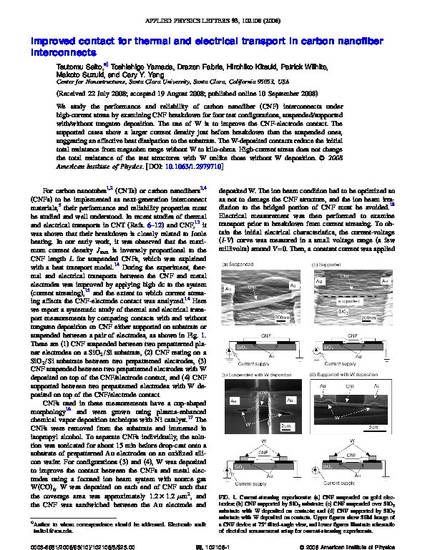
Article
Improved contact for thermal and electrical transport in carbon nanofiber interconnects
Electrical and Computer Engineering
Document Type
Article
Publication Date
9-8-2008
Publisher
American Institute of Physics Publishing
Disciplines
Abstract
We study the performance and reliability of carbon nanofiber (CNF) interconnects under high-current stress by examining CNF breakdown for four test configurations, suspended/supported with/without tungsten deposition. The use of W is to improve the CNF-electrode contact. The supported cases show a larger current density just before breakdown than the suspended ones, suggesting an effective heat dissipation to the substrate. The W-deposited contacts reduce the initial total resistance from megaohm range without W to kilo-ohms. High-current stress does not change the total resistance of the test structures with W unlike those without W deposition.
Citation Information
T. Saito, T. Yamada, D. Fabris, H. Kitsuki, P. Wilhite, M. Suzuki, and C.Y. Yang, "Improved contact for thermal and electrical transport in carbon nanofiber interconnects," Applied Physics Letters 93, 102108 (3 pp) (2008). https://doi.org/10.1063/1.2979710

Copyright © 2007 American Institute of Physics Publishing. Reprinted with permission.